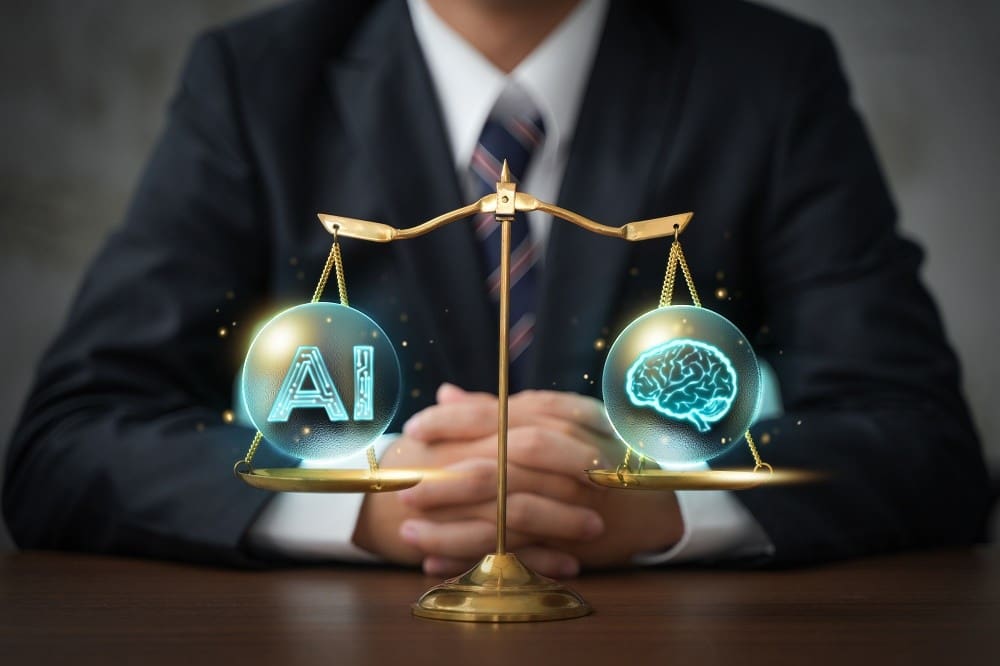Understanding AI Tools for Lawyers
AI Tools for Lawyers in the context of lawyers refers more to an array of software tools that can be useful to lawyers in their work. These tools utilise features such as machine learning, NLP and data analysis for managing sophisticated legal tasks. From prognosis to case outcomes to making research simpler, AI has become a valuable tool to legal professionals.
How AI is Reshaping the Legal Industry
AI Tools for Lawyers in the legal profession is not just a transformation of technology; it is the transformation of the legal profession and the emergence of a data-driven approach to legal phenomena. The trend of AI Tools for Lawyers is on the rise among lawyers as it expand their possibilities for case management, research and interaction with clients, which gives significant advantage in today’s market.
- Automated Legal Research: Using AI language processing, one can go through millions of legal papers within a few seconds to find case laws, statutes, and legal precedent. This not only saves time, but also provide lawyers with the most updated information as possible.
- Predictive Analytics: With referencing to the past histories, AI can thus approximate future outcomes of such cases which can assist lawyers in making the right choices on the next course to embark on. It can prove particularly useful in cases of litigation wherein the chances of success or failure can be determining for the settlement.
- Contract Analysis and Drafting: Legal writing AI-tools can help in contract legal drafting as they help eliminate the probability of mistakes and law compliance. They can also go through other agreements that parties working within the commercial businesses have signed to and point out to some dangers or issues.
- Virtual Legal Assistants: It is possible for these virtual companions to perform administrative tasks such as time-organization, communication with customers, and filing of documents while the actual lawyers can attend more significant issues.
How Can AI Be Used as a Lawyer?
While AI cannot replace human lawyers, it can perform many tasks that traditionally require a lawyer’s expertise. AI can assist with:
- Document Review: The benefit of utilizing AI can able to read large number of documents which are more efficient than human and also able to figure out only the necessary data for the legal teams.
- Legal Writing and Research: Some of the more renowned AI based tools include the likes of Westlaw AI which can help in the use of powerful research features that can even present an insight which could ordinarily take one ages to research manually.
- Case Preparation: AI can assist the lawyers in build-up towards cases by analyzing data, determining resemblances of cases, and even, exercising the cases inside the court.

Is There a Legal AI Tool?
Indeed, there is a number of AI Tools for Lawyers that are existing and being currently utilized by lawyers. These tools include the various legal databases for researching services, the more general artificial intelligence services that are used for a variety of legal services. Some popular legal AI tools include:
- Westlaw Edge: It is an application that helps in legal research through integrated of artificial intelligence and some of its features include; Predictive searching facilities, Litigation tools and Case suggestions.
- ROSS Intelligence: An online service that leverages Artificial Intelligence in order to type and retrieve specific legal information in a timely manner and with greater efficiency.
- Luminance: A software that is used in the area of document review and due diligence usually in the course of mergers and acquisitions.
How is AI Helpful in Law?
AI’s role in law goes beyond mere convenience; it fundamentally changes how lawyers practice and manage their work. Key benefits of AI in law include:
- Enhanced Efficiency: First of all, AI helps cutting through the work load, since routine tasks can be computerized and lawyers can then dedicate their time to more important matters.
- Cost Reduction: Through the use of legal AI technologies, a lot of cost can be cut down getting information during research, reviewing documents and preparing cases.
- Improved Accuracy: Legal documents are prepared and checked for accuracy through the help of AI hence reducing the probability of errors.
- Access to Insights: AI means accessibility of a huge amount of the legal information, which can help to optimize the legal decision-making.
How Can AI Be Used in Court?
Artificial Intelligence (AI) is making significant inroads into the judicial system, enhancing various aspects of court operations and legal proceedings. Here’s a look at some ways AI can be utilized in court:
Case Analysis and Prediction
AI algorithms can analyze vast amounts of legal data to identify trends and predict case outcomes based on historical data. This can help attorneys formulate strategies by understanding how similar cases have been decided in the past.
Document Review and Management
AI tools can assist in the review of legal documents, contracts, and evidence. Natural Language Processing (NLP) technologies can quickly sift through large volumes of text, identifying relevant information, potential issues, or discrepancies that may require attention.
Legal Research
AI-powered legal research platforms can provide lawyers with faster and more accurate results. These tools can analyze case law, statutes, and regulations, helping attorneys find pertinent legal precedents and supporting evidence efficiently.
Sentencing Recommendations
Some jurisdictions are exploring the use of AI to assist judges in making sentencing decisions. By analyzing past sentencing patterns and outcomes, AI systems can provide recommendations to ensure consistency and fairness in sentencing.
Jury Selection
AI can analyze demographic data and juror backgrounds to assist legal teams in selecting jurors who are likely to be favorable to their case. This can help attorneys build a more strategically aligned jury.
Chatbots and Virtual Assistants
AI-powered chatbots can provide legal assistance to self-represented litigants, helping them understand court procedures, fill out forms, and find information about their cases. This can improve access to justice for individuals who may not have legal representation.
Evidence Analysis
AI can assist in the evaluation and analysis of evidence, such as videos, images, or digital files. Machine learning algorithms can identify patterns or anomalies that may be relevant to a case, enhancing the quality of evidence presented in court.
Court Administration
AI can streamline court administration tasks such as scheduling hearings, managing case dockets, and processing paperwork. This can improve efficiency and reduce delays in the judicial process.
Free AI Tools for Lawyers
While many advanced AI Tools for Lawyers come at a cost, there are also free options available for lawyers looking to enhance their practice:
- Casetext: A searchable database providing the user with an opportunity to find various legal resources for free.
- Legal Robot: This tool helps scan legal texts while identifying complicated words and phrases and offer less complicated synonyms.
- DoNotPay: Also known as the “world’s first robot lawyer,” DoNotPay helps users with various legal issues, from fighting parking tickets to drafting legal documents.
Best AI Tools for Lawyers
Choosing the right AI tools can make a significant difference in a lawyer’s workflow. Here are some of the best AI tools tailored for legal professionals:
- LexisNexis: An online system for legal research that can enhance the search functions and generate additional analytical data through the use of artificial intelligence.
- Contract Express: An artificial intelligence developed tool to increase case authoring of legal documents and decrease repetitive work time.
- Kira Systems: Kira Systems that is famous for its artificial intelligence-powered contract review functionality is designed to extract and analyze data from legal copies as fast as possible.
AI Lawyer: The Future of Legal Practice?
An idea of an AI lawyer should not be viewed as the AI specialist replacing a human lawyer but bolstering him. Some specific functions that can be observed in AI lawyers at present are response to legal queries, preliminary search and assistance in the preparation of legal instruments. However, currently, they cannot work independently as existing legal practitioners do; still, they signify a shift toward the integrated systems where AI would serve as a resource to human lawyers.
AI Tools for Law Students
AI tools are not just for practicing lawyers; they are also beneficial for law students who need to master complex legal concepts and case laws. Tools like:
- Quimbee: An online learning tool, which is designed to offer case briefs, video lectures and quizzes to aid the students to learn more effectively.
- Westlaw AI: Gives the students an opportunity of accessing a wide legal database, making it a good source of information for the students especially when doing their research.
AI for Legal Research
It is known that legal research is time-consuming and it is one of the most important steps in legal work. Two of the prominent examples are Westlaw AI and LexisNexis that help in the research task by generating all the desired documents and cases in a matter of minutes as opposed to hours. Westlaw and LexisNexis are legal databases which employ certain algorithms to find the most relevant information and possible similar cases and statutes.

Free AI Legal Writing Tools
Legal writing requires precision, clarity, and adherence to specific formats. Free AI legal writing tools can assist lawyers and students in drafting legal documents:
- BriefCatch: A legal writing AI tool that improves on comprehensiveness, style, form and especially the tone used.
- Jotform PDF Editor: This feature means that the users can draft and modify legal documents without incurring any charges; this application is essential for those who do not wish to spend a lot of money.
Best AI for Legal Writing Free
Finding the best free AI tools for legal writing can be challenging, but several options stand out:
- LawGeex: An automated comparison of a legal document with the contract review criteria set and pointing at the parts that require attention.
- Grammarly: While not specifically designed for legal writing, Grammarly’s enhanced grammar and style features are quite helpful when fine-tuning standard and contracts.
- Hemingway Editor: Thematizes readability improvements and underlines advice regarding the correct choice of style, thus assisting lawyers and law students in creating literate legal texts.
Westlaw AI: Leading the Charge in Legal Innovation
Westlaw AI has gained a lot of fame in the legal industry with its powerful research capabilities. It has features such as natural language search, predictive analytics, and citation verification, Westlaw AI helps lawyers and legal researchers find relevant information faster and more accurately than ever before.
Frequently Asked Question (FAQs):-
1. What are the best AI tools for legal research?
A. The best AI tools for legal research include
- Westlaw AI
- LexisNexis
- ROSS Intelligence.
These tools offer advanced search capabilities, predictive analytics, and comprehensive legal databases.
2. How can AI be used as a lawyer?
A. Lawyers can use AI if they need assistance for document review, legal research, case preparation, and drafting legal documents, enhancing efficiency and accuracy.
3. Are there any free legal AI tools available?
A. Yes, there are free legal AI tools like Casetext, Legal Robot, and DoNotPay, which offer various features to assist lawyers and law students.
4. How does AI help in courtroom proceedings?
A. AI helps in courtroom proceedings by providing judges with data-driven insights, analyzing evidence, and facilitating virtual hearings.
5. What is the role of AI in contract analysis?
A. AI tools can automate the contract review process, identifying potential risks and ensuring compliance with legal standards.
6. Can AI predict case outcomes?
A. Yes, AI Tools for Lawyers use predictive analytics to forecast case outcomes based on historical data, helping lawyers make informed decisions.
7. What are the best AI tools for legal writing?
A. Some of the best AI tools for legal writing include LawGeex, BriefCatch, and Grammarly, which provide feedback on clarity, style, and tone.
8. How can law students benefit from AI tools?
A. AI tools like Westlaw AI and Quimbee provide law students with access to legal databases, case briefs, and study aids, enhancing their learning experience.
9. Are there AI Tools for Lawyers specifically designed for lawyers?
A. Yes, tools like Contract Express, Luminance, and Kira Systems are specifically designed to meet the needs of legal professionals.
10. Is AI reliable for legal research?
A. AI has proven to be highly reliable for legal research, offering accurate, relevant, and up-to-date information that can significantly enhance the quality of legal work.





0 Comments